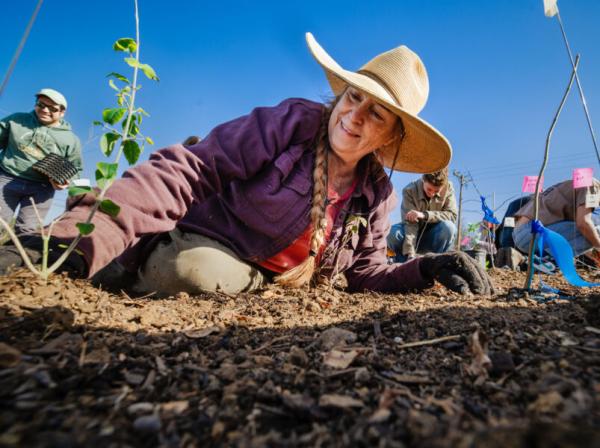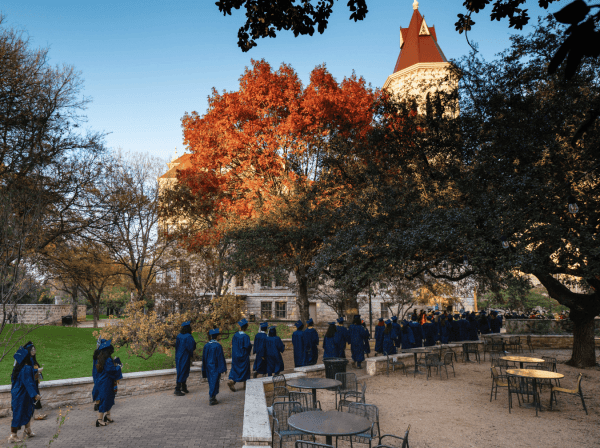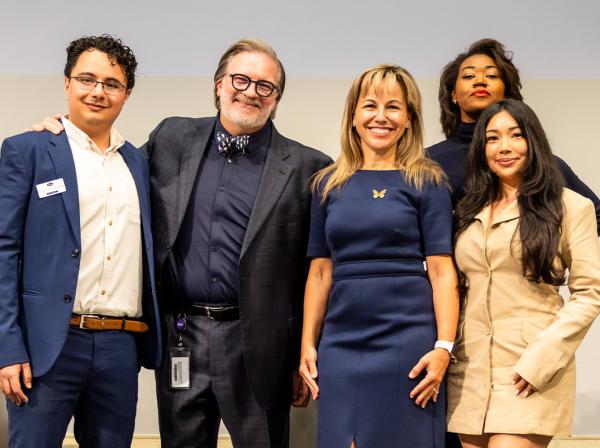St. Edward’s Community Counseling Clinic to Provide Low-Cost Grief Support Groups and Therapy Services Online
AUSTIN, Texas — The St. Edward’s Community Counseling Clinic is recruiting people for its online grief support groups and grief therapy groups. The clinic offers mental health support at a time when pandemic conditions can exacerbate the severity of grief while simultaneously decreasing the availability of social interaction and mourning rituals, both of which are vital for supporting grievers.
“In general, research suggests that when a death occurs, there’s actually a slight improvement in the first three months or so in terms of people’s functioning because they’re inundated with social support and they’re planning and attending funerals and memorials – so they’re kept busy and well-surrounded,” said Jane Milman, adjunct faculty in Counseling at St. Edward’s University. “When death happens during the pandemic-era, limited social interactions and the disruption of mourning rituals make the grieving process more challenging.”
Launched last year, the Community Counseling Clinic provides on-campus training for graduate students in the Master of Arts in Counseling (MAC) program as well as meets a need for low-cost counseling for the Austin community. The Clinic doesn’t turn people away if they lack financial resources, and relies on community donations, grants, and small fees to provide its services. Trained graduate students will facilitate grief peer support groups, which bring together people with a similar concern, in this case, grief/loss, and allow them to support one another, under the supervision of faculty members.
Grief therapy groups, which employ therapeutic techniques, will be co-facilitated by trained graduate students and faculty members who specialize in grief. The clinic will start by offering four grief groups with a maximum of eight people in each. Milman, who is leading the clinic’s grief services, says that the grief therapy offered by the clinic is based on a meaning-oriented approach and uses an evidence-informed therapy protocol. This approach offers a space where people can explore how to return to living a meaningful life with their grief. It provides a space for sharing and reflecting but also offers the opportunity to engage in therapeutic exercises.
The Clinic’s grief support services are open to any individual who is grieving the loss of a loved one, whether they are newly bereaved or have been dealing with grief for many years. Interested individuals can contact the clinic, and counselors will assess individual needs. People will either be offered grief peer support groups or grief therapy groups depending on their grief experience and the kinds of services they are interested in receiving. Although the clinic’s expansion into grief groups was planned as an in-person service before the pandemic, the clinic’s faculty have transitioned both grief services and all other clinic therapy services online.
Online grief services can play a vital role in personal healing, especially in the pandemic context where so few alternative options for grief support are available.
“Whereas before, you could go out and distract yourself by going to a movie, a meal, or whatever other activity you enjoy… or you could lean into your grief with the support of your entire friend or community network,” Milman said. “Now, it’s either you’re on your own with your grief, or you’re on your own with two or three family members.
In some cases, that can really exhaust the capacity of the individual or the family to support each other through their grief.” Although the peer support groups and therapy groups will be held online, which can have its technical challenges, Milman believes that both the active components of grief therapy and the community-building aspect of peer support groups that are key to positive mental health outcomes will still be present. “The grief therapy groups are designed to help folks who are really stuck in their grief. But peer support groups are about building a community around your grief by providing a space where grievers can gather and be with each other through the grief experience under the care of trained facilitators” she said.
Before facilitating grief groups at the clinic, the Counseling students received extensive training delivered by Milman, who is an expert in the field of grief, and by Paula Loring LCSW-S who specializes in grief peer support groups and has led facilitator training both for the Austin Clinic for Grief and Loss and for the Porting Loring Bereavement Center. Loring will continue as a consultant. Both faculty and students have also received training in conducting online counseling, which has grown in popularity because of its convenience and effectiveness. The online training gives graduate students another skillset, the clinic’s faculty said. “Gaining the skills to be able to flexibly change therapeutic modalities and still be effective is invaluable,” said Kerrie Taylor, assistant professor of Counseling and director of the Community Counseling Clinic.
Community Counseling Clinic
Phone: 512-317-2416 or 512-428-1242
Email: counseling@stedwards.edu
Donate Donors will have to choose St. Edward's Community Counseling Clinic from the drop-down menu under "designation."


